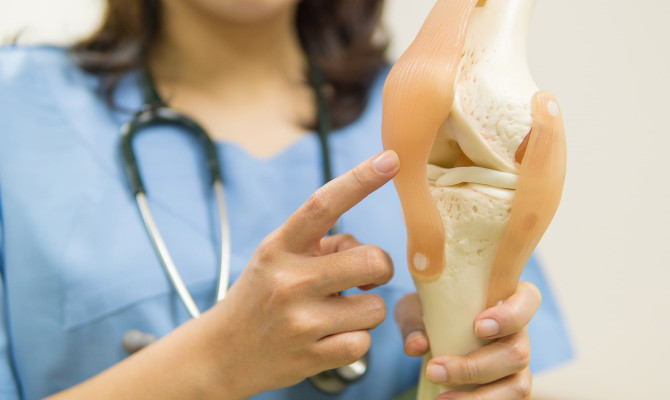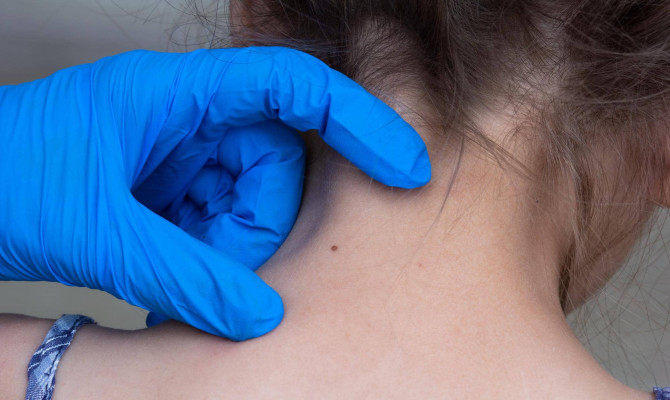Down Syndrome : Types, Symptoms, and Management

- Down Syndrome
- 17 Aug 2023
Overview
What is Down syndrome?
Down’s syndrome or trisomy 21, another name for the genetic disorder known as Down syndrome, results in an individual having an extra copy of chromosome 21 at birth. In the body, chromosomes are collections of genes. Newborns usually have forty-six chromosomes. They influence how a baby’s body develops throughout pregnancy and after delivery, and this extra copy alters how the body and brain of a kid evolve. It may present lifetime issues to both their physical and emotional health.

Symptoms
Signs and symptoms of Down syndrome
During pregnancy
Signs of Down syndrome during pregnancy may include:
- Decreased fetal movements 1Symptoms| Researched based study from Downsyndrome.org.uk
- Slower fetal weight gain as the pregnancy progresses.
- Early delivery and smaller baby than usual.
Symptoms in babies
A Down syndrome baby may show the following features:
- Flat face
- Flat nasal bridge
- Small ears
- Slanted eyes pointing upwards
- A short neck
- Protruding tongue 2Symptoms| Researched based study from Cdc.gov
- Small feet and hands
- Loose joints
- Poor muscle tone
- Shorter than average height
- Relatively short fingers
- A single line across the palm
In Grownups
As they grow, they may have the following symptoms:
- Stubbornness
- Tantrums
- Delayed milestones
- Difficulty walking
- Difficulty speaking
- Learning issues
- Lack of attention
Types
Types of Down Syndrome
People frequently cannot detect the difference between different types since they may look similar and have similar behavioral traits.
Following are the three types of Down syndrome:
- Translocation down syndrome
- Trisomy 21
- Mosaic down syndrome
Translocation Down syndrome
- There is an extra chromosome 21 in part or whole, but it is joined to another chromosome or translocated rather than existing independently.
Trisomy 21
- The most frequent kind of Down syndrome is each cell containing an additional copy of chromosome 21. 2Types| Researched based study from Cdc.gov
Mosaic Down syndrome
- It results from an additional chromosome being present in some but not all of a child’s cells at birth, denoting a mixture or combination. The symptoms of mosaic Down syndrome are typically less severe than those of trisomy 21.
Causes
Down syndrome causes and risk factors
Chromosome 21 has an extra copy, which results in morphological changes and developmental problems. But researchers are still determining the exact reason or the diversity of contributing elements.2Causes| Researched based study from Cdc.gov
Risk factors
- Late pregnancy – Women who are 35 years of age or more are more inclined to get a baby with Down syndrome as compared to those who become pregnant at younger ages. However, as more births occur, most babies are born with Down syndrome to younger mothers under thirty-five years.2Causes| Researched based study from Cdc.gov
- The likelihood of having another kid with Down syndrome rises after having a child already.
- Parents with a translocation in their gene are likelier to have a kid with Down syndrome. 3Causes| Researched based study from Mayoclinic.org
Can Down’s syndrome be inherited?
- Down syndrome is frequently not passed down via families.
- It results from an error in the division of cells during the fetus’ early development.
- Even if parents do not exhibit any signs or symptoms of Down syndrome, both men and women can transmit translocation type of Down syndrome to their offspring.
- Only three to four percentage of children with Down syndrome have the translocation type; some of them acquired it from one of their parents.
Diagnosis
Diagnosis of Down syndrome
Two different tests are offered to those who have a higher likelihood of having a child with Down syndrome, namely
- Screening tests
- Diagnostic tests
Screening tests
- Only provide an estimation of the likelihood that a woman may give birth to a child with Down syndrome and support the need for additional testing.
- They are less invasive and expensive.
There are many screening tests, including
- Ultrasound – done between weeks 14 and 24 of pregnancy, can help screen for Down syndrome based on soft signs such as thickened nuchal folds, missing or tiny nasal bones, and prominent ventricles.4Diagnosis| Researched based study from Nlm.nih.gov
- Cell-free DNA – is a blood test that examines fetal DNA found in the pregnant woman’s blood.
- Nuchal translucency testing – is done with ultrasound and can calculate the open space in tissue folds behind a developing fetus’s neck.5Diagnosis| Researched based study from Mountsinai.org
- Triple or quadruple screen determines the concentrations of different chemicals in the pregnant woman’s blood.6Diagnosis| Researched based study from Aafp.org
Diagnostic tests
Identify specific defects and confirm whether the unborn child will have the condition. However, they are more intrusive and raise the danger of :
- Miscarriage
- Preterm labor
- Injury to the fetus
Diagnostic tests may include:
- Amniocentesis – The amniotic fluid from the sac that surrounds the infant can be examined by a doctor.
- Chorionic villus sampling – A physician may check placental tissue 4Diagnosis| Researched based study from Nlm.nih.gov
- Percutaneous umbilical blood sampling (PUBS) – investigates umbilical cord blood.2Diagnosis| Researched based study from Cdc.gov
Diagnosis after birth
A medical expert can use the following techniques to identify Down syndrome in newborns:
- Newborn physical examination.
- Blood examination to count the baby’s chromosomes. 7Diagnosis| Researched based study from Nichd.nih.gov
Management
Management of Down Syndrome
The comprehensive approach to treating people with Down syndrome entails symptomatic care because there is no cure.
The best course of action for each person with Down syndrome will depend on their unique strengths and limitations, as well as their physical and intellectual needs, and may include:
Parental education
- It is one of the most critical components of managing Down syndrome since parents must be aware of the various problems that could be linked to it so that their children can receive the proper diagnosis and care.
Physical therapy
- As physical abilities are crucial in a child’s development, Physical therapy can involve exercises and activities that help develop motor skills, build muscle strength, and enhance posture and balance.8Management| Researched based study from Nichd.nih.gov
Occupational therapy
- Assists in determining ways to modify routine duties and environments to suit a person’s requirements and skills better. Self-care techniques including eating, getting dressed, writing, or using a computer are taught in this therapy.
Speech Therapy
- Speech therapy enhances children with Down syndrome’s language and communication abilities.
Psychological therapy
- It is necessary because Down syndrome kids are more likely to experience communication difficulties, obsessive behaviors, attention deficit hyperactivity disorder (ADHD), and other mental health problems.
Assistive devices
- Theses include hearing aids, special writing pencils, touchscreen computers, and PCs with large-letter keyboards that make it easier to learn or finish activities.
Services for specialized education
- Some kids will need Individualized Education Plans (IEPs) supported by various specialists.
Down syndrome is a chronic illness for which there is no known treatment. The condition’s symptoms are controllable, and any potential comorbid conditions can be treated.
Prevention
Prevention of Down syndrome
- It is impossible to prevent Down syndrome as the exact cause is unknown.
- Before getting pregnant, people at a high risk of having a child with Down syndrome or who already have a child with the condition should see a genetic counselor.
- A genetic counselor can explain a person’s likelihood of becoming pregnant with a kid who has Down syndrome.3Prevention| Researched based study from Mayoclinic.org
Complications
Complications arises with Down syndrome
Down syndrome can cause several complications in individuals, as follows:
- Vision problems
- Dental problems
- Hearing loss
- Thyroid issues
- Seizures
- Obesity
- Leukemia
- Dementia
- Congenital heart defects
- Autoimmune disorders
- Obstructive sleep apnea
- Susceptible to various infections
- Misalignment of neck vertebrae
- Obsessive-compulsive disorder
- Digestive problems like heartburn, celiac disease, etc.
Can a Down syndrome person have a baby?
- Yes, those with Down syndrome who were given the gender “female” at birth (AFAB) are fertile and capable of having children. While those with Down syndrome who were designated as male at birth (AMAB) may have low reproductive rates. They might experience difficulties raising a child, though, and there is a 50% chance that future offspring of a Down syndrome parent will also have this genetic disorder. 9Complications| Researched based study from Globaldownsyndrome.org
Prognosis
Prognosis of Down syndrome
In the presence of proper care and treatment, kids born with Down syndrome enjoy happy, healthy lives and can achieve developmental milestones, learn alongside their classmates, form relationships, and have fruitful careers. Depending on how the disorder affects them, they may work and have a semi-independent life. Modern healthcare advancements, early therapies, and effective management of congenital problems, including heart conditions, give a child born with Down syndrome the best opportunity for a long, fulfilling life.
Any feedback on this article?
 This Articles content was accurate
This Articles content was accurate Very Informative Article
Very Informative Article I have a question or a comment
I have a question or a comment
 This article contains inaccurate content
This article contains inaccurate content This article was not helpful
This article was not helpful I have a question or a comment
I have a question or a comment
We appreciate your helpful feedback!
Checkout our social pages
References
-
Down’s Syndrome Association
when Down’s syndrome has been diagnosed | Symptoms
-
Centers for Disease Control and Prevention
Facts about Down Syndrome | Symptoms
-
Mayo Clinic
Down syndrome | Causes
-
National Library of Medicine
Down Syndrome | Diagnosis
-
Mount sinai
Nuchal translucency test | Diagnosis
-
American Academy of Family Physicians
What is a triple screen? | Diagnosis
-
Eunice Kennedy Shriver National Institute of Child Health and Human Development
How do health care providers diagnose Down syndrome? | Diagnosis
-
Eunice Kennedy Shriver National Institute of Child Health and Human Development
What are common treatments for Down syndrome? | Management
-
Global Down Syndrome Foundation
Down Syndrome Misconceptions vs. Reality | Complications



































